My friend Kait helped me write this article and it reflects how both of us feel regarding The Darkling, a character from Leigh Bardugo’s Shadow and Bone. This article includes references to both the books and the Netflix adaptation. Thank you, Kait, for introducing me to the Grishaverse and fueling my obsession with this incredible world.
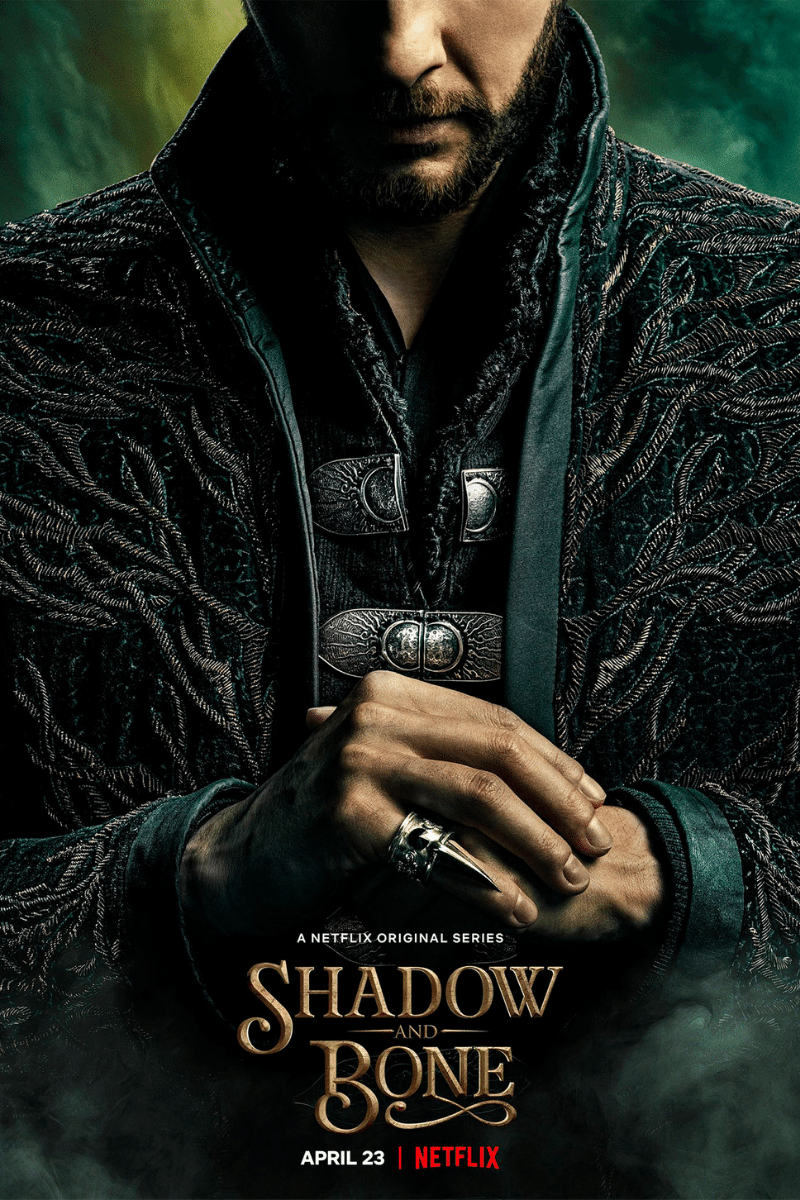
The title of this article could easily be, “The Darkling: why the fandom should stop brushing him off as “just a villain” because it misses out on a truly complex character and is a disservice to the amazing writing of Leigh Bardugo.”
*Disclaimer: I am not a Darkling apologist. This post is in no way excusing the toxic and villainous behaviors The Darkling showed in the books and show. This post is not saying he would be a healthy relationship choice for Alina or loved her in a healthy way. This post is not saying that because we acknowledge his tragic backstory or because his goals started noble that it in any way is an excuse for his later actions.
It is no secret that there is a lot of controversy surrounding The Darkling in the book community. He is very much a controversial character and was intentionally created to be such. However, one of my main grievances with the discourse surrounding The Darkling is that a lot of those taking part don’t look at The Darkling’s character at a deeper level – or with the mindset that Leigh Bardugo created him to be seductive and intriguing and charming, which is the reality of most villains. Most monsters don’t look like a monsters, but instead are disguised as whatever it is you need them to be. That is what I’ll be addressing and looking at: The Darkling from his rise to his gloriously ordinary fall (Ruin and Rising ending only – avoiding any King of Scars or Rule of Wolves mentions due to spoilers).
related posts
3 Delicious Drinks Inspired by the Grishaverse // 100 Products Every Shadow and Bone Fan Will Love // How to Read The Grishaverse Books in the Correct Order
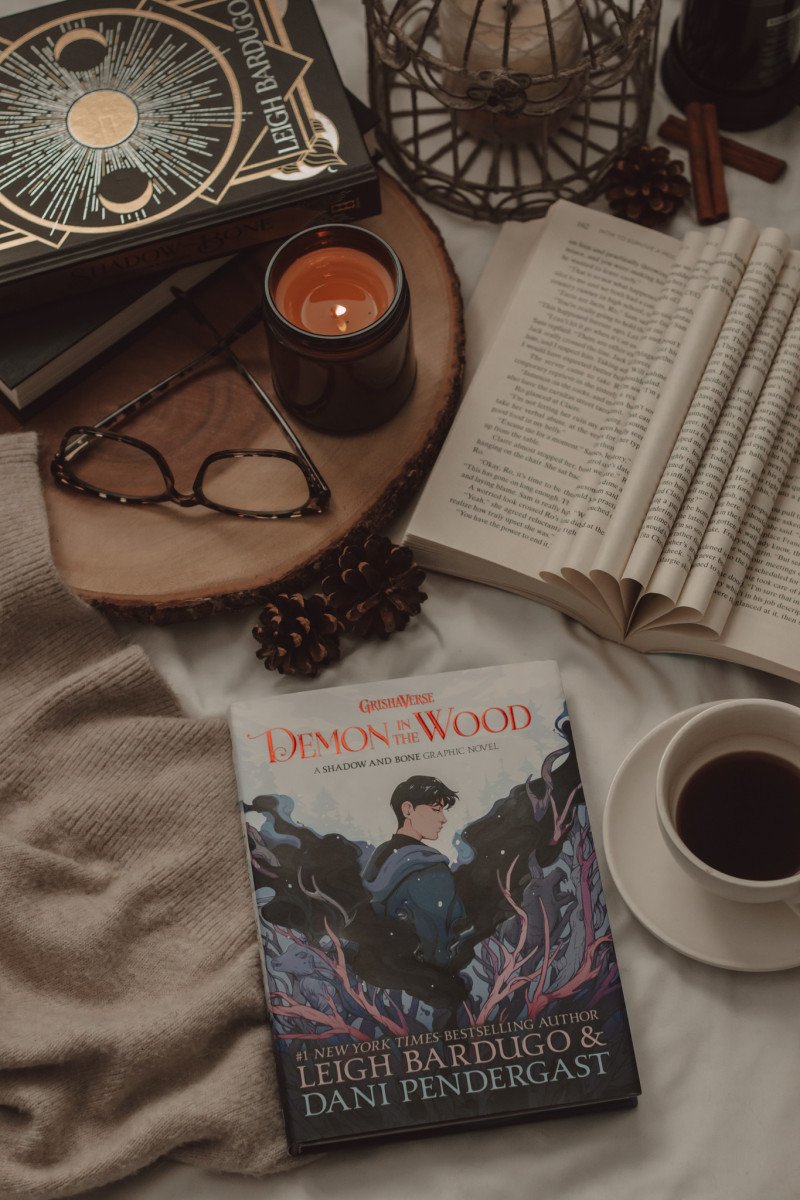
Before we start talking about The Darkling, it is important to look at the one who is mostly responsible for the man we are introduced to in Shadow and Bone: Baghra.
To avoid spending too much time talking about Baghra, the important aspects of her story for context are: she was one of the daughters of Illya Morozova, the first recorded Grisha in history. Also, the most powerful – capable of practicing all abilities within the small science… and merzost. Because of her relationship to Morozova, she witnessed first-hand the divide between Grisha and Otkazat’sya (non-Grisha). She grew up prideful and with a strong belief that she was better than those around her – not just non-Grisha, but fellow Grisha who did not have as much power as she had. So it came as a shock and betrayal to her when she witnessed her all-powerful, madman father sacrifice himself to save her non-Grisha sister. She viewed this as him abandoning her and a waste of his potential for a sister who was nothing of importance. This strengthened her belief that she was better than everyone around her and didn’t need anybody else to look out for her or vice-versa.
This played a huge role in The Darkling’s upbringing, as she conceived him not out of love, but because she wanted a child – thus becoming a single mother. She raised him with beliefs that he was meant for so much more than this broken world that favored the scared and weak Otkazat’sya. The Darkling was raised with the belief that he was a god amongst men. So when he started to develop the same curiosity his grandfather had – to discover just how much power he could attain through Merzost, even at the expense of consequences – his pride that was so carefully built by his mother propelled his dedication to the study of this forbidden science.
However, his original intentions were not as vengeful as they are when we are introduced to him. The Darkling always felt a deep connection to the Grisha around him and for his home country. We see this more clearly in The Demon in the Wood, a short story about The Darkling as a child that Leigh released. In this short story, we see just how lonely little Aleksander truly is. We also see how he is persecuted for his strength, not just by non-Grisha but by other Grisha. This story gives us a glimpse into Baghra’s parenting as well, as she makes it explicitly clear to Aleksander that they are better than others and that he will always be hunted, so he must do whatever he can to survive – even if that means killing others to protect his power and identity.
The story ends with Aleksander making a promise to himself that he will see his home country and his fellow Grisha free. Not just free, but prosperous. This is through the innocent lens of a young boy with noble goals, but because of his immortality, Aleksander’s once-noble goal was twisted into the vengeful plan we see with The Darkling. Due to his immortality, The Darkling was able to see just how persecuted his Grisha were, no matter how they helped or how peacefully they lived their lives. He was also able to witness first-hand the many trials of Ravka, the one place he was able to truly feel at home.
His immortality gives us a unique perspective into the evolution of his goals and methods. If Leigh were to write a book from his perspective at his early stages, he would be a hero, not unlike those we read about in YA fantasy. He would be Aelin (Throne of Glass), fighting to reunite her country and save her kind from persecution. He would become Rhysand (A Court of Thorns and Roses) who is willing to do and withstand anything to protect his people. He would become Malik (A Song of Wraiths and Ruin) who makes a deal with the devil to save his loved ones. However, while those beloved YA heroes and heroines achieve their goal after two years – or in Rhys’ case, fifty – The Darkling constantly loses his battle and his loved ones over and over again for thousands of years. He becomes even more desperate, even more willing to cross the line between honorable and villainous in order to save his country and his people, to create a safe home – not just for himself but for all those who were persecuted.
Of course, as we know, once you take one step towards “the dark side,” it becomes increasingly easier to justify any and all actions. We see this with The Darkling’s use of Merzost. While he may have gone into it with selfless and honorable intentions, the use of Merzost changed him and twisted his goals. Once he tasted that power he only wanted more. He still had the goal of saving Ravka and the Grisha, yes, but now it became “at whatever cost” and “only if I am the savior”. Merzost turned him into someone who takes what is not given and who will do whatever it takes to bring Grisha to full freedom and Ravka back to its former glory.
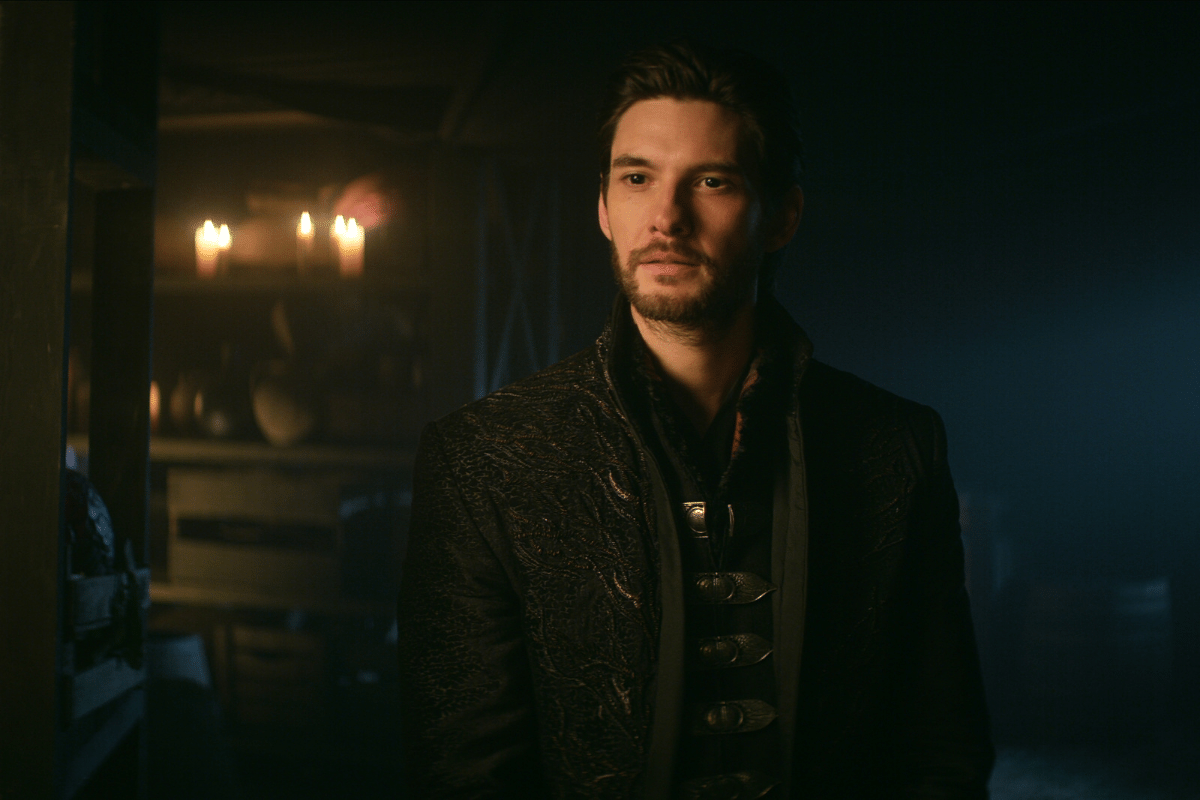
While this fall is, in itself, a tragic story, it becomes even more tragic when we see the betrayal of his mother.
No, not the betrayal of her ruining his chances to “get it on” with Miss Alina Starkov, but the betrayal of her not originally taking ownership in the role she played in his downfall, and instead treating him as a lost cause. We see this more in Ruin and Rising, when she admits to Alina that she was scared of The Darkling and what she did to set him on that path – but she was also too scared to look inward and take ownership. She was too full of pride to reach out to him, and it was easier to push him away and paint him as a lost cause than it would have been to reach out as a mother and accept her mistakes. Aleksander Morozova was an incredibly lonely boy, cut off from forming any long-lasting relationships by the walls his own mother put around him.
All he wanted was to belong and to be accepted. Through all this, he knew he had his mother. No matter how harsh her lessons, she was there for him and would always come for him. So when he was at the tipping point of his villain arc, instead of helping him or trying to stop him, Baghra closed herself off emotionally to her son. She viewed him as greedy, evil, and unnatural. While Baghra had her reasons (as stated in her backstory which I mentioned above) and while her actions may not have changed the trajectory of his actions on a grand scale, I think the harm he did out of loneliness would have been lessened, as well as his sense of complete and utter betrayal. He has witnessed absolutely everyone in his life betraying him which has forced him to do things on his own regardless of others. He lost that last piece of compassion when the one who taught him that he didn’t need anyone turned her back on him.
An interesting aspect of the Netflix adaptation’s portrayal of Baghra and The Darkling, is that in the show, we see Baghra telling Alina that The Darkling’s “lonely boy” act was just that: an act. We also hear her tell Alina that The Darkling created The Fold intentionally and wanted it as a weapon because he was overcome with greed. However, it is important to note that in the show’s backstory of The Darkling, we see a story that completely contradicts Baghra’s claim. The Fold was an accident and wasn’t made from a desire for power, but from having no other weapon to protect the Grisha and his mom. We see The Darkling confidently walking towards the soldiers, but when they mention how they will kill his mother, he hesitates. He hesitates because this hits a cord with him as his mother is the only one who has truly been with him through it all, and that makes him even more resolved to destroy the soldiers and protect her.
While he only intends to make the soldiers his own, we see that the cost of Merzost makes his soldiers into monsters and then creates The Fold as a by-product. Neither the monsters nor The Fold were The Darkling’s original intent, as was mentioned by Baghra. However, the corruption of the Merzost’s use (as visualized by the dark veins we see creeping up his neck) opens up a new hunger for power within The Darkling. As even mentioned by Alina in the books, the Small Science is addicting, the power seductive. Once you’ve had a small taste then it is not enough until you get it all.
“I’ve been fighting this war alone for so long.”
This leads into the last part of The Darkling’s character that I found so intriguing and heartbreaking – and one that is often overlooked or written off as another manipulation. That is his loneliness. While Baghra told Alina that it was just an act, I believe it was not an act at all. We’ve already seen it in The Demon in the Wood, and when looking at the context clues of his character throughout the trilogy, it is clear that he was also looking for an equal while Baghra constantly told him that there was none. While his greed and descent into tyranny may have warped this loneliness, it is still there. When he meets Alina his main goal is to use her power, yes, but he still sees himself in her as well. He sees his loneliness echoed within her. He sees her strong desire to belong and to find herself and it reminds him of himself. While his desire for Alina is not a healthy one and is obsessive, he truly does develop feelings for her. She is the one person who can bring balance to his life. The one person who will understand the weight of eternity and never leave him behind.
Most of the fandom brushes away his seduction of Alina as just another manipulation act, but I think by doing so, it completely disregards a key part of his character. While yes, he does use his seduction as manipulation (ex: kissing her in the adaptation of Shadow and Bone, when she starts asking questions about the amplifiers), it is more than just manipulation to him. We see this in his famous line, “the problem with wanting is that it makes us weak”. There is vulnerability in that one line. We see that same vulnerability many times throughout the trilogy as Alina gets close to destroying him – closer than anybody has. He is constantly underestimating her and letting her get closer because of his desire for her – and because his desire to not be alone for eternity clouds his judgment. He hesitates with taking her life while he normally wouldn’t. Now, it’s definitely not because he loves her in an unselfish way and wants the best for her. It’s a selfish love born from a fear of continued loneliness. He wants her to be his, not her own. This aspect of loneliness and a desire to be seen is such a core human desire that it is heartbreaking and jarring to see this so strongly in a villain as dark as The Darkling. It is equally tragic knowing that if Alina came sooner – before he was shaped into the hardened, power-hungry villain who takes whatever he wants – that maybe she could have been the light that kept the hope burning. And perhaps, even more heartbreaking than that, is the potential of what could have been had The Darkling not chosen the path he did. The potential for two equals in every way, searching for the same things, finding each other, and achieving all those goals and more.
When I say that I love The Darkling, it is a statement that comes with an asterisk. I don’t love the way he treats others and I don’t disregard his behaviors either. I love The Darkling because of how complex his character is. His character is tragic and intriguing and seductive. I don’t just love his character as a phenomenally written villain, but because of the potential he could have had if he didn’t follow the path he did. I love the potential and the idea of Darklina because of how similar they were.
While the purpose of this article was to show how interesting and well written The Darkling’s character is and why I think people should take a deeper look at his character instead of quickly dropping him in the villain box, this is in no way an argument excusing The Darkling and the choices he made. A tragic backstory or a character that starts with good intentions is not a reason to overlook or excuse the abuse and manipulation that someone inflicts. The Darkling’s character is misunderstood, but his actions are not. He is manipulative, he is selfish, and he has done unforgivable things. The beauty of fantasy is that it is not reality. We can mourn the potential that was there with The Darkling finding redemption with Alina. We can wish for a future where Alina brings the light back into his life, banishing the dark stain of Merzost, and help him reach his original goal.
We can cry over the life of a character that was not just a larger-than-life villain who was always five steps ahead, but a character that, “was just a boy -brilliant, blessed with too much power, burdened by eternity.” (Ruin and Rising, pg. 384).
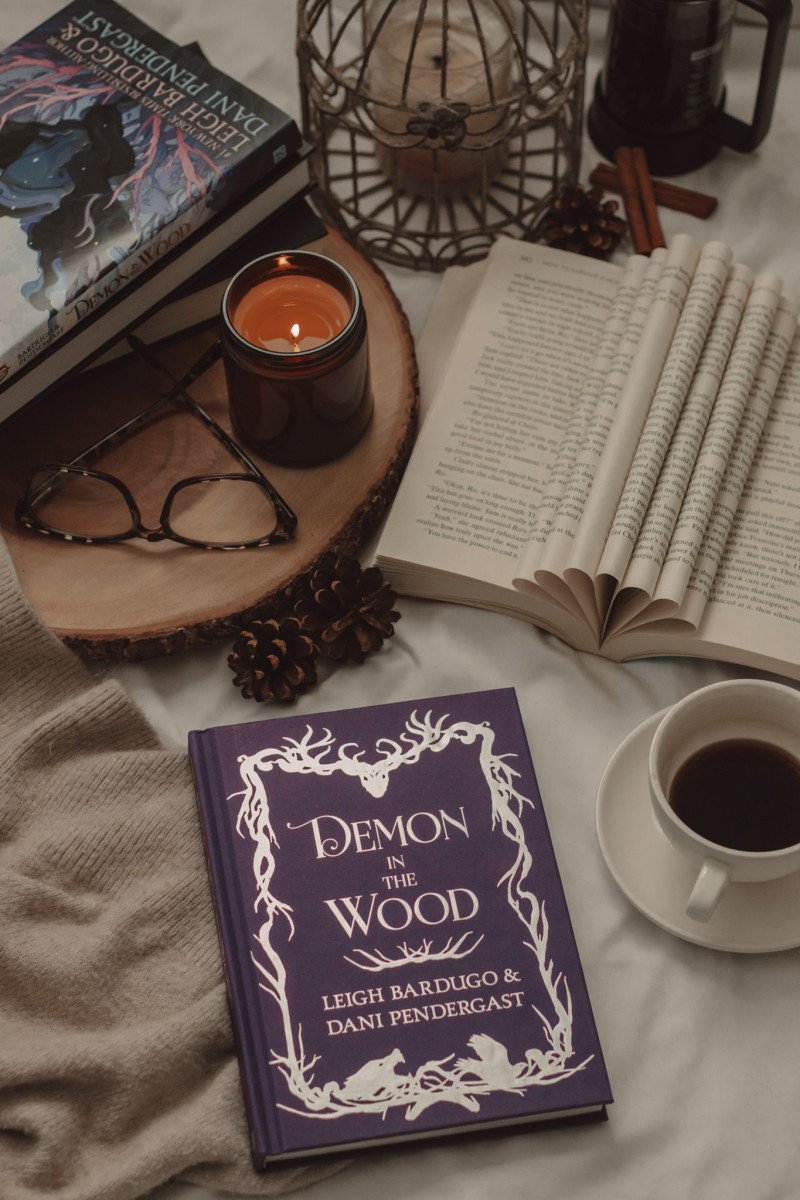
Have you read Shadow and Bone? Do you appreciate The Darkling’s character as much as I do?
pin for later
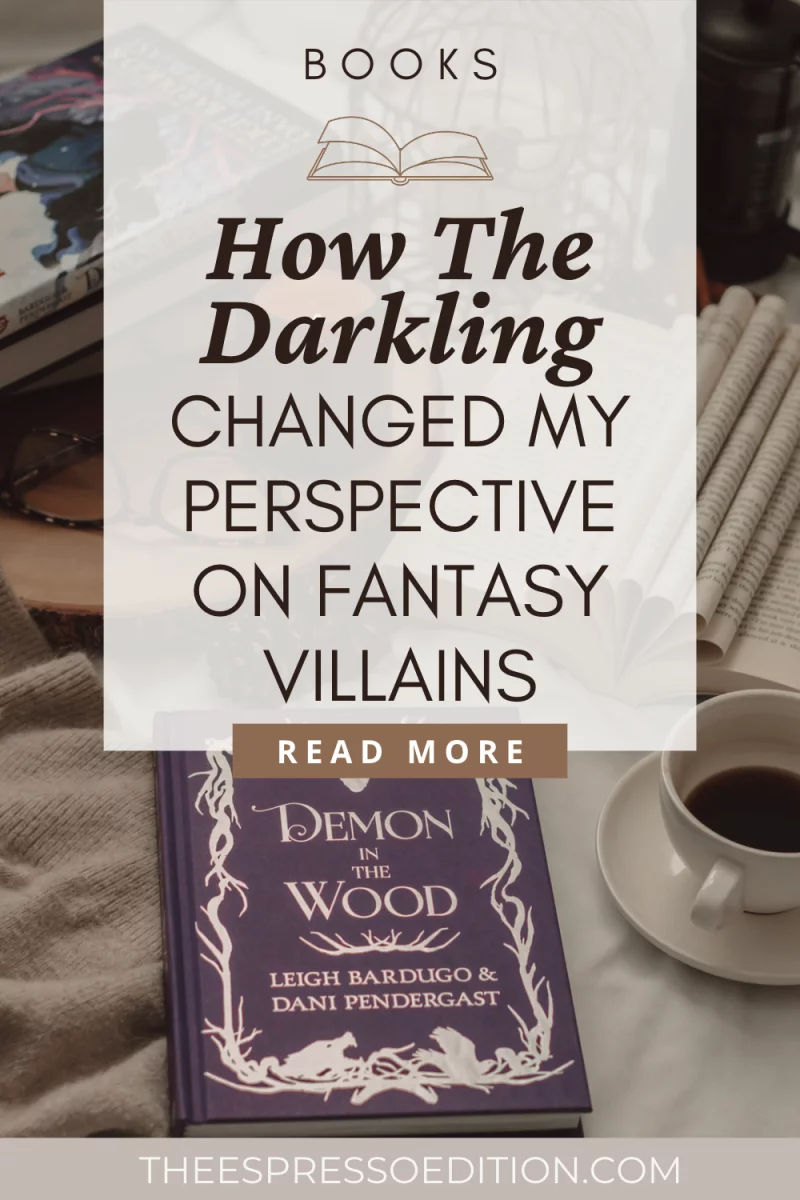

![Which decor retailer have you shopped with the longest? ☕️
⠀⠀⠀⠀⠀⠀⠀⠀⠀
As my style has evolved and matured over the years, @desenio has always been there with the perfect art prints and posters to suit my home. 🤎
⠀⠀⠀⠀⠀⠀⠀⠀⠀
I have had the privilege of working with them 5x over the years and I never cease to be amazed at the quality of their art prints and how perfectly they elevate any room in my home. It really is incredible how sometimes all you need to do is change out the posters featured in a gallery wall for a space to transform like magic! 🪄
⠀⠀⠀⠀⠀⠀⠀⠀⠀
Use the code ESPRESSOEDITION for 55% off prints (personalized excluded), 20% off canvases, and 10% off frames at Desenio until November 30th! 🙌🏼
⠀⠀⠀⠀⠀⠀⠀⠀⠀
Do you have gallery walls in any of the rooms in your home? 🏠
⠀⠀⠀⠀⠀⠀⠀⠀⠀
*
*
*
*
*
#desenio #cozyaesthetic #cozyhomedecor #thepursuitofcosiness #cozytime #artprints #cozydecor #homedecor #hyggestyle #quietshadesofbrown #cottagecore #ofcosymoments #autumnvibes #ltkhome #modernorganic #farmhousedecor #cottagedecor #gifted #booksandcoffee [ad]](https://theespressoedition.com/wp-content/plugins/instagram-feed/img/placeholder.png)

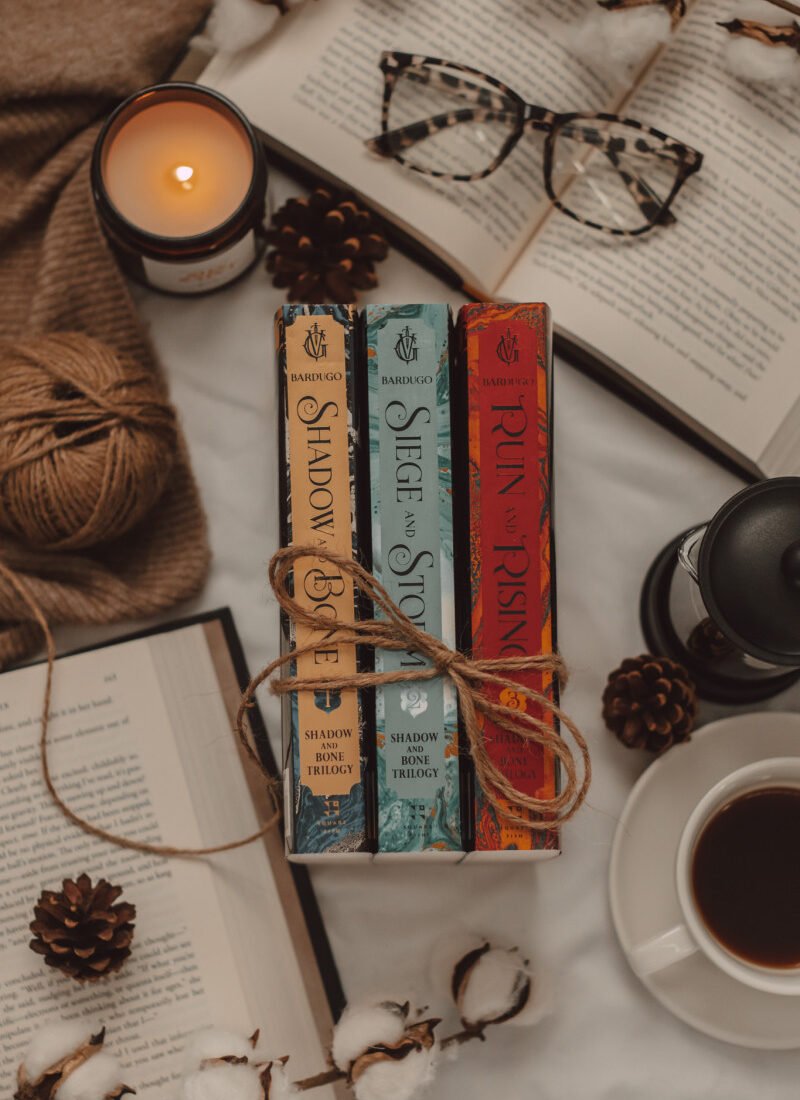


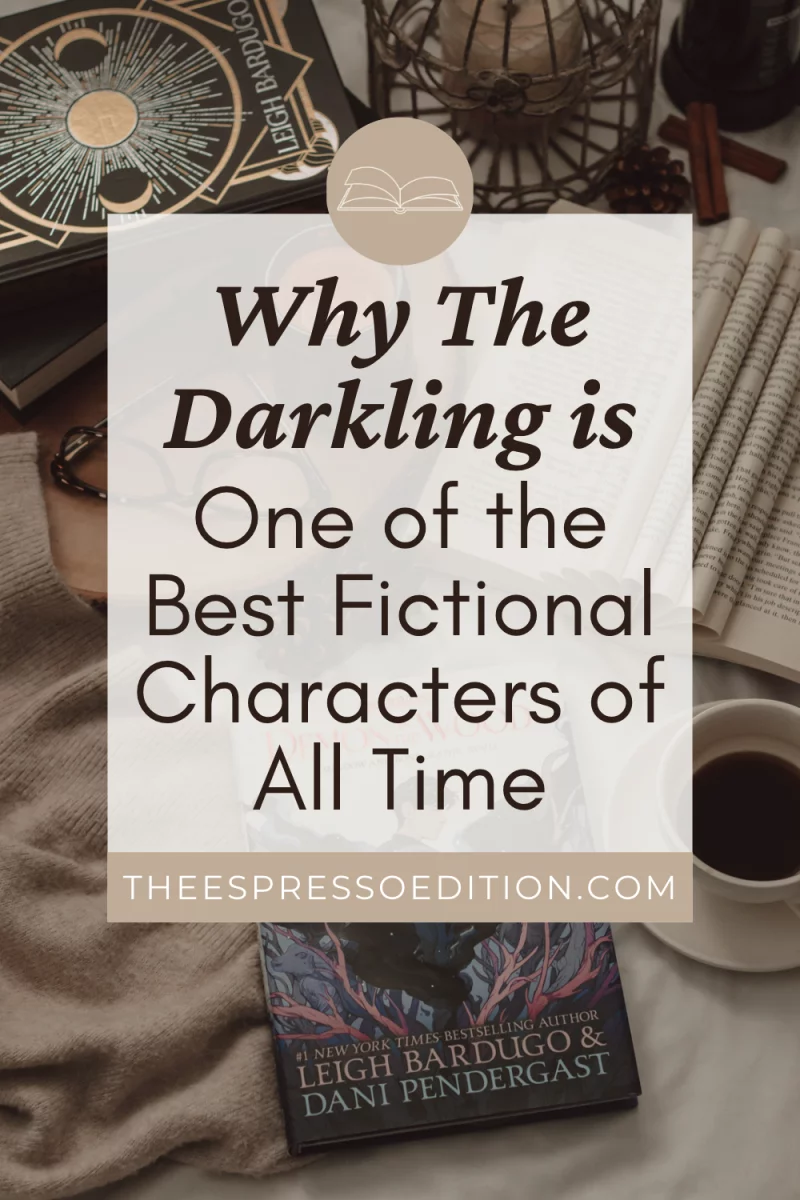
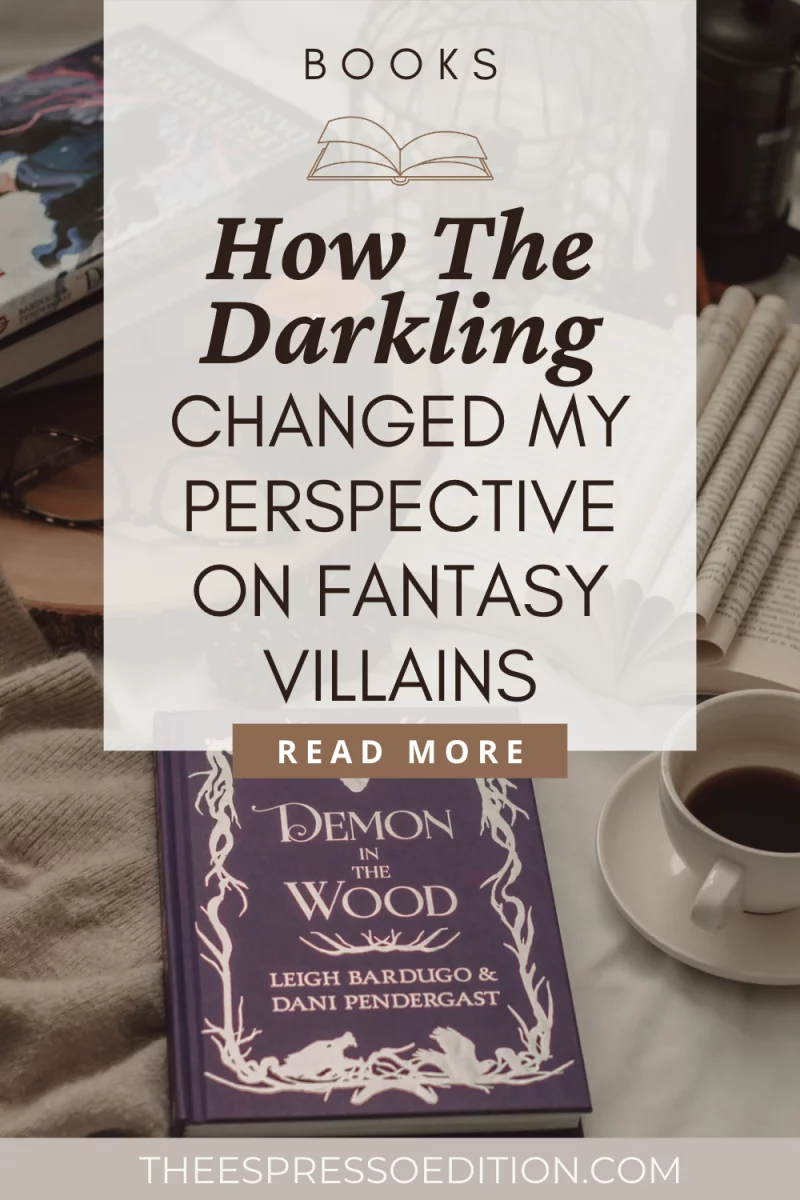
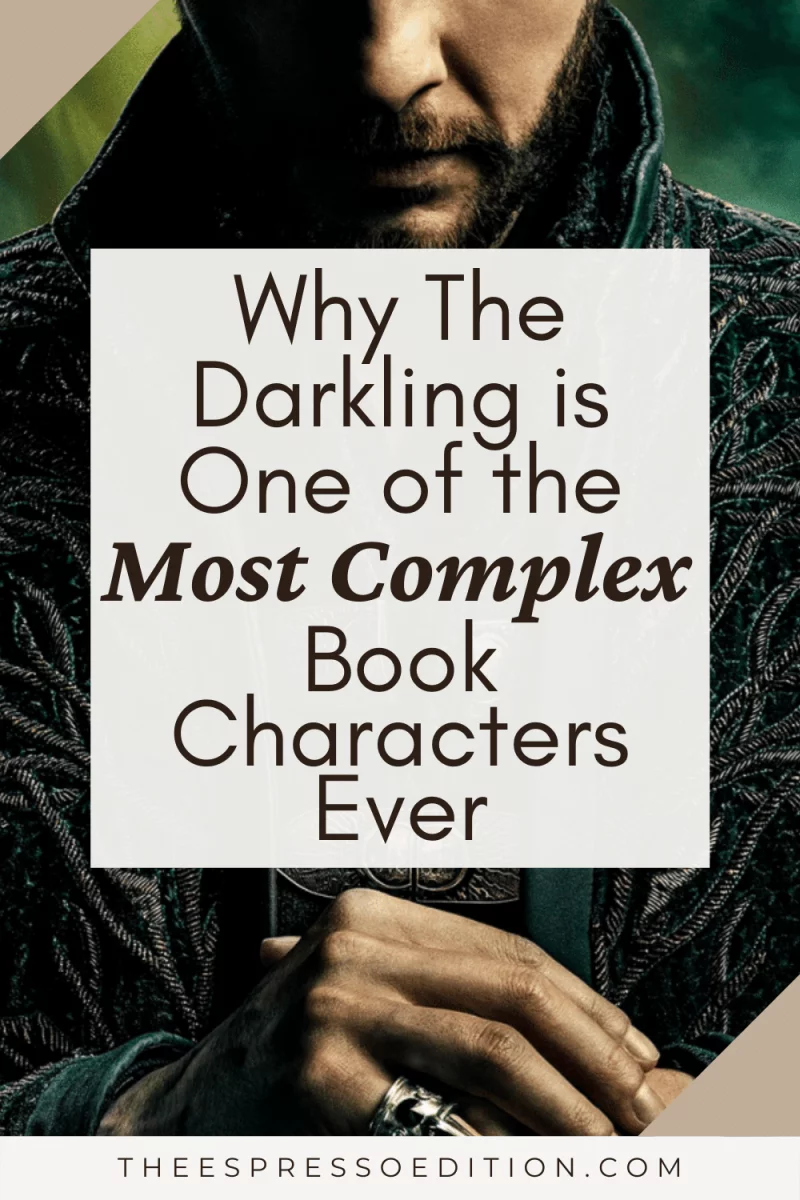
I haven’t read the Shadow and Bone but I’m intrigued to do so after reading this post! x
Lucy | http://www.lucymary.co.uk
This article is PHENOMENAL!!!!! This is *exactly* how I feel about the Darkling’s character!! I’ve never really been able to put it into words because it’s so complicated but this is it! I really appreciate how Leigh Bardugo created such a complex villain by corrupting a fallen hero’s hopes into a twisted obsession. The Darkling is one of the most fascinating villains I’ve ever read/seen.
I could not have loved this post more! This was such a beautiful and in-depth analysis of everything surrounding the end result of who he became, toxicity and all. As a mental health provider, I’ve seen first hand how multiple aspects influence someone’s personality and behaviors (subconscious and conscious). He is SO many layers! Yes, we all have free will but again, most of our childhood influences shape our choices and behaviors. Without the proper guidance or even opportunities later in life to dissect ourselves and correct our thought distortions and negative behaviors we are completely out in the woods when it comes to any chance of bettering ourselves. Maybe it happens – maybe it doesn’t. Yes he’s FULL of unacceptable qualities and could fit in an antisocial personality disorder – but he’s also without any real insight because people either fear him, worship him, or avoid him. Where’s the potential to grow or right wrongs without any of that? His only role model was Baghra, which you’ve already discussed as problematic – to say the least. I love love love this review!!!
You just wrote what hundreds of us have been thinking/feeling for YEARS.
Thank you for understanding the magnificence of The Darkling without forgetting his faults.
What a beautiful article!
Great analysis!
I love this analysis of the Darkling because it got me to think a lot more about him from a different point of view. It’s true that every villain has a backstory and The Demon In The Wood short story seemed to give his backstory a little more of an oomph. It was also interesting to think of Baghra as the mother that gave up on the troubled child she created!
Ok. I’m bookmarking this to come back to! I haven’t read Shadow and Bone yet, which means I also haven’t watched the show! I’m finishing up a book now and then I plan on reading this next!
I love this post – it’s so well written!! The Darkling is one of the most complex and fascinating characters I’ve ever come across in fantasy and so much more than just a villain and I think you’ve analyzed that perfectly here! I’ve bookmarked this post so I can read it again later 😄 Thanks for sharing!
Interesting – I’ve actually never read the series nor watched Shadow and Bone but I’ve been curious about it and I did hear a lot of things about The Darkling in general. That said, it’s interesting to read your perspective – it seems that the character is very complex!
I love that you both delve so deep into books like this! I tend to just read them for enjoyment and not think about them so much, but I know the author would love that you took so much for the book.
We haven’t read Shadow and Bone, but you’re making us want to.
I have not read this but I am drawn to more complex character stories. I think I would like it!
Great article! I actually haven’t heard of this one but this character sounds really intriguing! I think studying different characters is really interesting. I love doing this with films and costume design – how the clothing relates to the wearer, how it relates to the story and the psychology behind it all. I think there’s definitely a lot to be said between the lines 😉
Lizzie
http://www.lizzieinlace.com
Interesting, I’ve actually never read the series nor seen the show on Netflix but I literally just put Shadow and Bone on my watchlist on Netflix! I love a complicated villain!
Wow! I’ve never read the series or seen the show, but I am super intrigued now. I love a story with lots of layers, and a “good” villain is always complicated in my opinion. Especially with the family history and story of their upbringing. I’m going to have to check The Darkling out!
Did you edit your post since2021?
I think it’s brillant!
Yes, I did. Only small grammatical details here and there and new Pinterest graphics 🙂
Thank you for this article.
I read Leigh Bardugo’s books thanks to Ben Barnes and I thank him for that. I discovered incredible characters and a thrilling Grisha story. For me, Ravka has become real. But I told myself that I didn’t see the Darkling as it is because of my fan attitude for Ben Barnes. I hadn’t finished the trilogy when I saw season 1. Your article showed me that the Darkling marked others than me. Leigh Bardugo made a complex character. Ben Barnes made him human. As the novels are written from Alina’s point of view, we don’t know much about what he does, what he thinks.
I especially agree on Baghra. She made a child for herself (and others she abandoned like Ulla). And because Aleksander isn’t acting the way she wants, she lets him sink in. He’s a character that I don’t really like.
Fan of readings, I’m not always satisfied with the adaptations but here I can’t wait to see what the series will develop. I imagine the scenes and hope for others on Aleksander. He will never be a Villain to me. He’s not perfect, of course, but he could have been saved. I imagine a sequel to King of Scars where this would be the case…
Ps : I am Belgian and my English is not the best, I used a translation program, I hope it will be fine.
I really felt this way considering how he was so devastated when Alina gave away her power from the amplifiers. He WANTED an equal who, in time, he believed would feel the same as him and join him in the “noble cause” he believed in. He wanted her to be his and when we knew he would be alone forever, he wanted to be killed in the end. There was no Grisha to outlive others with.